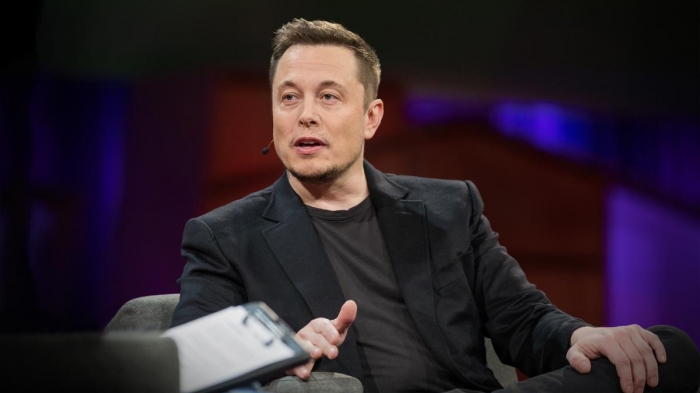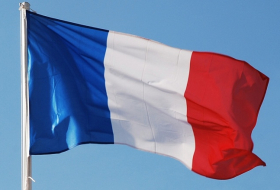He stunned investors on Tuesday with a tweet saying he had already lined up the funding, and he told employees that it would relieve the electric car company of the "enormous pressure" of Wall Street's expectations.
In a letter to Tesla workers that was posted on the company's blog, Musk called his idea the "best path forward."
"As a public company, we are subject to wild swings in our stock price that can be a major distraction for everyone working at Tesla, all of whom are shareholders," he wrote.
He also said trading its stock publicly "means that there are large numbers of people who have the incentive to attack the company." Musk has complained repeatedly about short-sellers, who profit when Tesla stock drops.
Musk, the CEO and largest shareholder, said on Twitter that the private funding valued Tesla at $420 per share. Tesla is already the most valuable automaker in the United States.
The plan would need shareholder approval, but Musk's tweet sent Tesla stock spiking by almost 9%. Trading in Tesla was later halted for more than an hour before Tesla posted Musk's letter to employees on its blog. It finished up 11%, at $379.
The stock had climbed slightly earlier in the day after the Financial Times reported that Saudi Arabia has quietly built a big stake in the company.
At first, Tesla had declined comment on Musk's tweet, even as he casually engaged Twitter followers with more posts about his plans.
Musk said that he hoped all current investors would stay with Tesla even if it went private. He said he would create a special fund to allow that. Fidelity, the investment firm, has such a fund for its stake in SpaceX, a separate private company also run by Musk.
He pledged to hold on to his stake in the company, about 20%, no matter what. He said he was "super appreciative" of Tesla shareholders, and vowed to "ensure their prosperity in any scenario."
Tesla (TSLA) has burned through cash while struggling to produce the Model 3, its lowest-priced electric car. That has driven the stock lower and raised concerns about whether Tesla will need to sell more shares to pay for expansion. Musk has insisted Tesla has no such need.
'Musk does not want to run a public company'
Musk has also clashed repeatedly with critics, especially investors who have taken short positions on the stock, meaning they benefit when the price falls. He clashed with analysts on a contentious call after Tesla reported earnings three months ago.
Gene Munster, managing partner at Loup Ventures and a top tech analyst, said the odds that Musk will take Tesla private were about one in three. But he said the idea made a certain amount of sense.
"Musk does not want to run a public company," Munster wrote on his website. "His mission for Tesla (to accelerate the globe's adoption of sustainable energy) is both grand and long-term, making it difficult to accommodate investors quarterly expectations."
It would cost about $71 billion to take Tesla private at $420 per share. Before Musk's tweet, Tesla had a market value of $58 billion, already higher than that of General Motors (GM) or Ford (F), even though those companies are significantly larger and more profitable.
In fact, Tesla has turned a narrow profit in only two quarters since it became a public company in 2010. Musk has vowed that the company will start turning a regular profit in the second half of this year.
In a 2013 report, the SEC said companies can use social media outlets to announce important information, so long as they comply with regulations and "investors have been alerted about which social media will be used to disseminate such information."
The SEC issued that report after Reed Hastings, the CEO of Netflix, used a Facebook post to congratulate Netflix's chief content officer on record-breaking viewership. Netflix stock moved higher as a result.
Tesla said in a regulatory filing in 2013 that investors interested in keeping up with Tesla should follow Musk's account.
The SEC declined comment on Musk's tweet.
Musk has a history of outrageous behavior on Twitter.
On April 1, amid rising market concerns about a cash crunch at Tesla, he tweeted an email announcing that Tesla would have to file for bankruptcy. The tweet was apparently an April Fool's joke.
Musk also faced intense public criticism after he suggested in a tweet that one of the rescuers of the Thai soccer team trapped in a cave was a pedophile.
He later deleted that tweet and apologized for that exchange, but at least one analyst suggested Musk needed to get off Twitter to restore investor confidence in the company.
After Musk, the next largest shareholders in Tesla are the mutual fund giants T. Rowe Price and Fidelity, with stakes of more than 9% and 8%, respectively, according to Thomas Reuters Eikon.
Scottish money manager Baillie Gifford, which recently urged Musk to focus less on tweeting and more on running the business, is the fourth-largest shareholder, with a nearly 8% stake. Chinese tech giant Tencent owns almost 5%.
James Anderson, a Baillie Gifford fund manager who recently called out Musk's tweeting in an interview with Bloomberg, had no comment about Musk's tweets on Tuesday. Fidelity and T. Rowe Price also declined comment.
CNN Money
More about: Tesla
















































